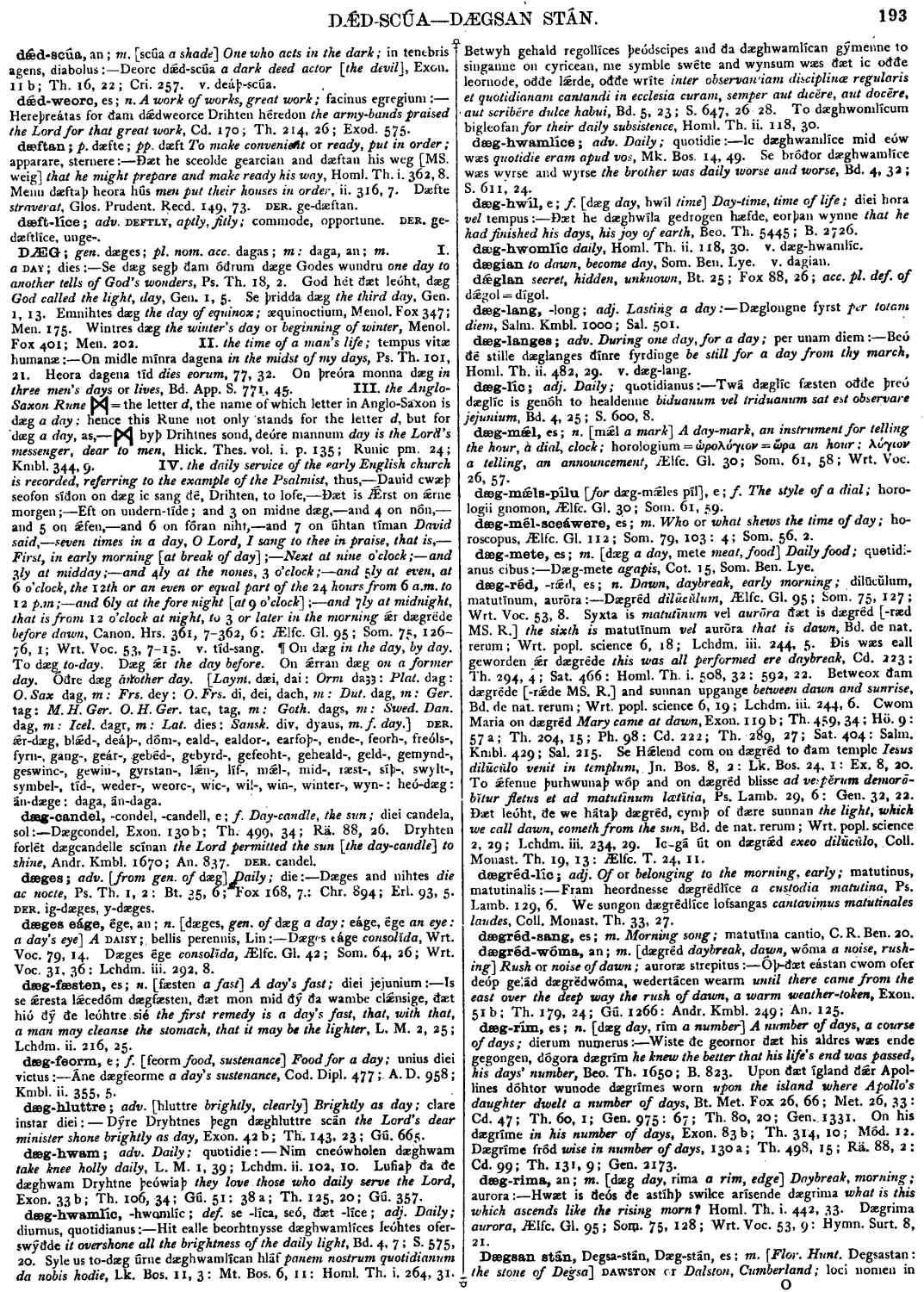DÆG
- noun [ masculine ]
-
Se dæg segþ ðam óðrum dæge Godes wundru
one day to another tells of God's wonders,
- Ps. Th. 18, 2.
-
God hét ðæt leóht, dæg
God called the light, day,
- Gen. 1, 5.
-
Se þridda dæg
the third day,
- Gen. 1, 13.
-
Emnihtes dæg
the day of equinox;
æquinoctium,- Menol. Fox 347 ;
- Men. 175 .
-
Wintres dæg
the winter's day or beginning of winter,
- Menol. Fox 401 ;
- Men. 202 .
-
On midle mínra dagena
in the midst of my days,
- Ps. Th. l01, 21.
-
Heora dagena tíd
dies eorum,
- 77. 32.
-
On þreóra monna dæg
in three men's days or lives,
- Bd. App. S. 771, 45.
- Hick. Thes. vol. i. p. 135 ;
- Runic pm. 24 ;
- Kmbl. 344, 9.
Bosworth, Joseph. “DÆG.” In An Anglo-Saxon Dictionary Online, edited by Thomas Northcote Toller, Christ Sean, and Ondřej Tichy. Prague: Faculty of Arts, Charles University, 2014. https://bosworthtoller.com/7328.
Checked: 1